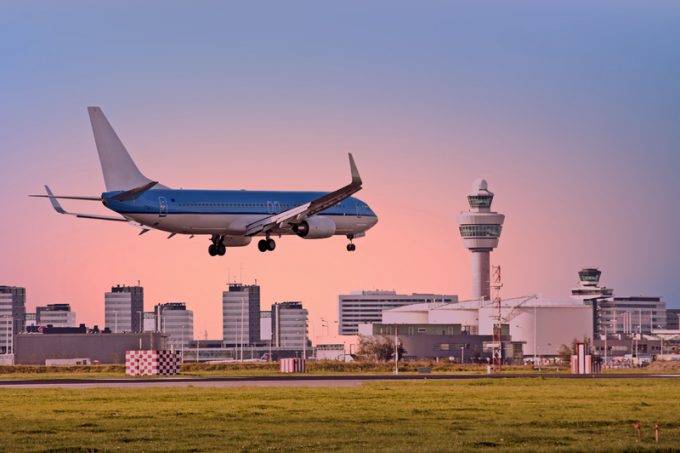Schiphol grows cargo volumes – but airport stakeholders want more
News that Schiphol (AMS) has grown its cargo volumes in the first half of the ...
UPS: MULTI-MILLION PENALTY FOR UNFAIR EARNINGS DISCLOSUREWTC: PUNISHEDVW: UNDER PRESSUREKNIN: APAC LEADERSHIP WATCHZIM: TAKING PROFITPEP: MINOR HOLDINGS CONSOLIDATIONDHL: GREEN DEALBA: WIND OF CHANGEMAERSK: BULLISH CALLXPO: HEDGE FUNDS ENGINEF: CHOPPING BOARDWTC: NEW RECORDZIM: BALANCE SHEET IN CHECKZIM: SURGING
UPS: MULTI-MILLION PENALTY FOR UNFAIR EARNINGS DISCLOSUREWTC: PUNISHEDVW: UNDER PRESSUREKNIN: APAC LEADERSHIP WATCHZIM: TAKING PROFITPEP: MINOR HOLDINGS CONSOLIDATIONDHL: GREEN DEALBA: WIND OF CHANGEMAERSK: BULLISH CALLXPO: HEDGE FUNDS ENGINEF: CHOPPING BOARDWTC: NEW RECORDZIM: BALANCE SHEET IN CHECKZIM: SURGING

Dutch cargo associations have fired warning shots at the government’s plan to reduce slots at Schiphol Airport, calling it overly political and potentially illegal.
Henk Venema, DHL Global Forwarding’s western Europe CEO – and recently appointed president of Air Cargo Netherlands (ACN) – did not pull any punches in his initial statements for the association.
“Shrinkage is politically a temporary solution to make aviation quieter, but it is not the real solution,” he said. “Certainly not when you look at the global growth of aviation that is expected. Shrinking Schiphol only means Dutch politics will bury its head in the sand and move noise pollution just across the border.”
ACN, together with Fenex and Transport en Logistiek Nederland, last week submitted views to the minister of infrastructure & water management as part of a consultation process, which they claim the government must adhere to. They say flight numbers cannot be cut until “all other (reasonable) measures have been demonstrably explored in order to achieve a noise reduction”.
“Operating restriction is the ‘last resort’,” argued the ACN. “The process of demonstrably making trade-offs is called the ‘Balanced Approach’.” It added that this approach was agreed several years ago in Europe to ensure that airport capacity was not subject to the whims of the political party in power.
“We are certainly not convinced that all options have been well explored and weighed against each other. We have the impression that a strong political statement was made last year with the announcement of the sharp reduction of 12% in the number of flight movements.”
ACN and its partners also accused the Dutch government of effectively moving the goal posts by building increasing amounts of housing near the airport, despite warnings.
It said: “The effect of nuisance mitigation measures has been largely undone (and still is) by urbanisation and housing construction creeping towards airports. The Balanced Approach regulation explicitly warned about this, but too little was done.”
The associations added an economic argument, pointing out that cargo is disproportionately harmed by slot restrictions, but has most value.
“Every cargo flight contributes about €27,000 to Dutch prosperity. For comparison: the annual welfare contribution of a network airline flight is approximately €7,200, and from a flight of a point-to-point airline it is €16,000. Air freight at Schiphol therefore has an added value of around €2bn – about 25% of the total… and 0.2% of GNP.”
They also noted cargo accounted for nearly one quarter of the jobs at the airport.
Research commissioned by the airport revealed that a reduction in slots from 500,000 to 440,000 would lead to a 29% decrease in cargo volumes, and a 60% fall in freighter numbers.
The associations also pointed out that not only is the Dutch government “bound by the Balanced Approach … but also to international law”. The process is enshrined in the Chicago Convention, they warned.
Comment on this article